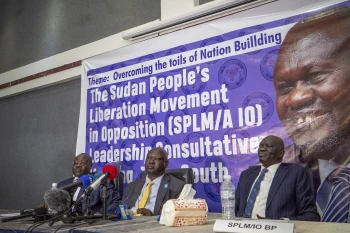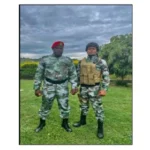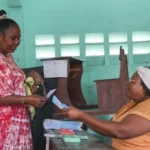In the tumultuous political landscape of South Sudan, a significant rift has emerged within the main opposition party, the Sudan People’s Liberation Movement-in-Opposition (SPLM-IO), following the prolonged detention of its leader, Riek Machar. Once seen as a unifying force against the ruling Sudan People’s Liberation Movement (SPLM) led by President Salva Kiir, Machar’s absence has triggered divisions that threaten the party’s cohesion and future.
Background: A Turbulent Political Climate
Since gaining independence from Sudan in 2011, South Sudan has been embroiled in civil strife and political instability. The SPLM-IO, founded in 2013, has positioned itself as a key player in the fight for change and reform in the newly formed nation. Riek Machar, a former Vice President, has been both a symbol of resistance and a controversial figure due to his complicated history with various factions. His repeated arrests have fueled grievances within the party and its external allies, sparking calls for greater internal democracy and leadership accountability.
Machar’s Prolonged Detention
Riek Machar’s detention, primarily stemming from political maneuvering by President Kiir’s administration, has resulted in serious repercussions for the SPLM-IO. Since his initial arrest in 2016 and subsequent political sidelining, Machar’s absence has created a vacuum in leadership. Many party members are increasingly frustrated with the lack of direction and strategic planning to counter the SPLM’s dominance in governance and military operations.
In 2021, Machar was released but faced constraints, particularly concerning efforts to form a unified military command as outlined in the 2018 peace agreement. As tensions linger, rifts have become more apparent, with factions within the SPLM-IO questioning the party’s structure and direction under the current leadership.
Rising Factions and Internal Discontent
Recent developments indicate a growing divide within the SPLM-IO, with groups emerging that openly challenge Machar’s leadership. Discontent among members has been exacerbated by concerns regarding transparency and accountability in both decision-making and resource allocation. Some members argue that Machar’s prolonged detention hampers the party’s efforts to maintain unity and credibility as an opposition force.
In August 2023, a faction of the SPLM-IO held a conference that called for reforms and a leadership overhaul, emphasizing the need for fresh faces and ideas. This meeting represented a clear challenge to Machar’s authority, illustrating the desperation and urgency felt by party activists who have grown weary of ineffective leadership. Critics contend that without a decisive shift in strategy or leadership, the SPLM-IO risks becoming irrelevant as a political entity in South Sudan.
International Implications and Future Outlook
The internal rifts within the SPLM-IO pose not just a threat to the opposition but also raise concerns for South Sudan’s stability at large. The international community is watching closely, especially as it continues to provide support for peace initiatives in the region. A divided SPLM-IO may weaken the opposition’s bargaining power in negotiations with the SPLM, potentially elongating the cycle of violence and instability.
Additionally, as South Sudan approaches another round of critical elections, the need for a unified opposition becomes more pressing. The SPLM-IO’s ability to address internal conflicts and present a coherent platform will be essential to challenge the dominant SPLM and advocate for peace and progress in the war-torn nation.
Conclusion
As internal divisions surface within South Sudan’s SPLM-IO, the future of the party remains uncertain. The absence of Riek Machar has led to significant challenges, with factions emerging that demand reform and renewed vision. Whether the SPLM-IO can reconcile these differences and mobilize effectively in time for critical political events will determine its role in shaping the future of South Sudan. The coming months will undoubtedly be pivotal for this beleaguered opposition party.
Email Us on editorial@nnafrica.com













